Introduction: Why Poultry Farming is Profitable in Nigeria
Poultry farming is one of the most lucrative agribusiness ventures in Nigeria, offering significant opportunities for entrepreneurs due to the growing demand for chicken meat and eggs. With a population exceeding 200 million and a rising interest in locally sourced food, starting a poultry farm in Nigeria can be both profitable and sustainable.
In this guide, we’ll take you through everything you need to know about starting a poultry farm, from planning to production, including tips for small-scale, medium, and large-scale operations.
What is Poultry Farming?
Poultry farming involves raising domesticated birds such as chickens, turkeys, ducks, or geese for meat or eggs. In Nigeria, chicken farming dominates the sector, particularly for broilers (meat production) and layers (egg production).
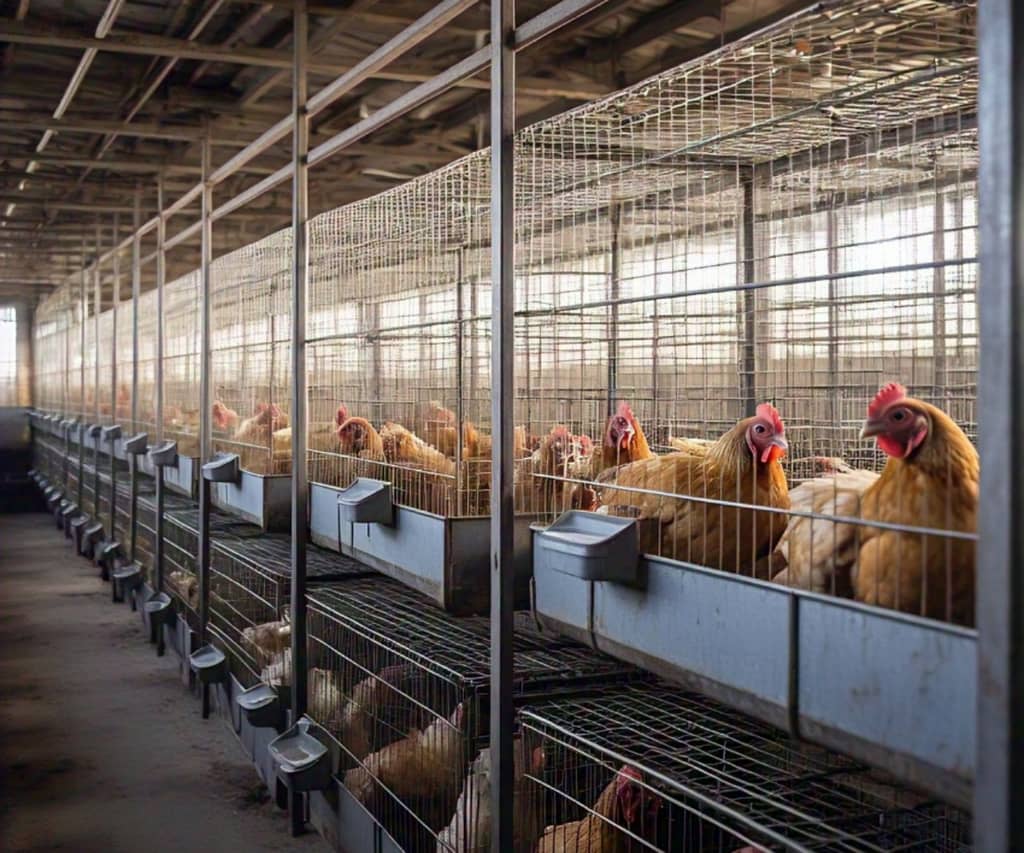
Why Start a Poultry Farm in Nigeria?
- High Demand: Chicken and eggs are staple foods in Nigeria.
- Quick Returns: Broilers mature in 6–8 weeks, offering fast profit cycles.
- Job Creation: The poultry business generates jobs in rearing, processing, and sales.
- Government Support: Incentives and grants are available for agricultural ventures.
Steps to Start a Poultry Farm in Nigeria
1. Conduct Market Research
- Identify your target audience (households, restaurants, hotels, etc.).
- Analyze competitors and the prevailing market prices for poultry products.
- Study market trends, including local and imported poultry supplies.
2. Choose a Poultry Farming Niche
- Broiler Farming: For meat production.
- Layer Farming: For egg production.
- Local Chicken Farming: For indigenous chicken breeds.
- Hatchery Business: Producing and selling chicks.
- Poultry Feed Production: Manufacturing and selling feed.
3. Develop a Business Plan
Include:
- Startup Costs: Land, housing, feed, equipment, and birds.
- Revenue Streams: Meat, eggs, manure, and by-products.
- Marketing Strategy: How you’ll sell your products.
4. Secure Capital and Budget
Depending on the scale of your farm, startup costs range from ₦200,000 for small-scale to ₦5,000,000 for medium or large-scale operations. Sources of funding include personal savings, loans, or government grants.
To Receive Latest Updates on: Scholarships, Internships, Recruitments and Job Opportunities Join our Telegram and WhatsApp Group Now!!
5. Select a Suitable Location
- Ensure the land is spacious, secure, and well-ventilated.
- Choose a location close to markets to reduce transportation costs.
- Adhere to environmental regulations to avoid complaints.
6. Construct Poultry Housing
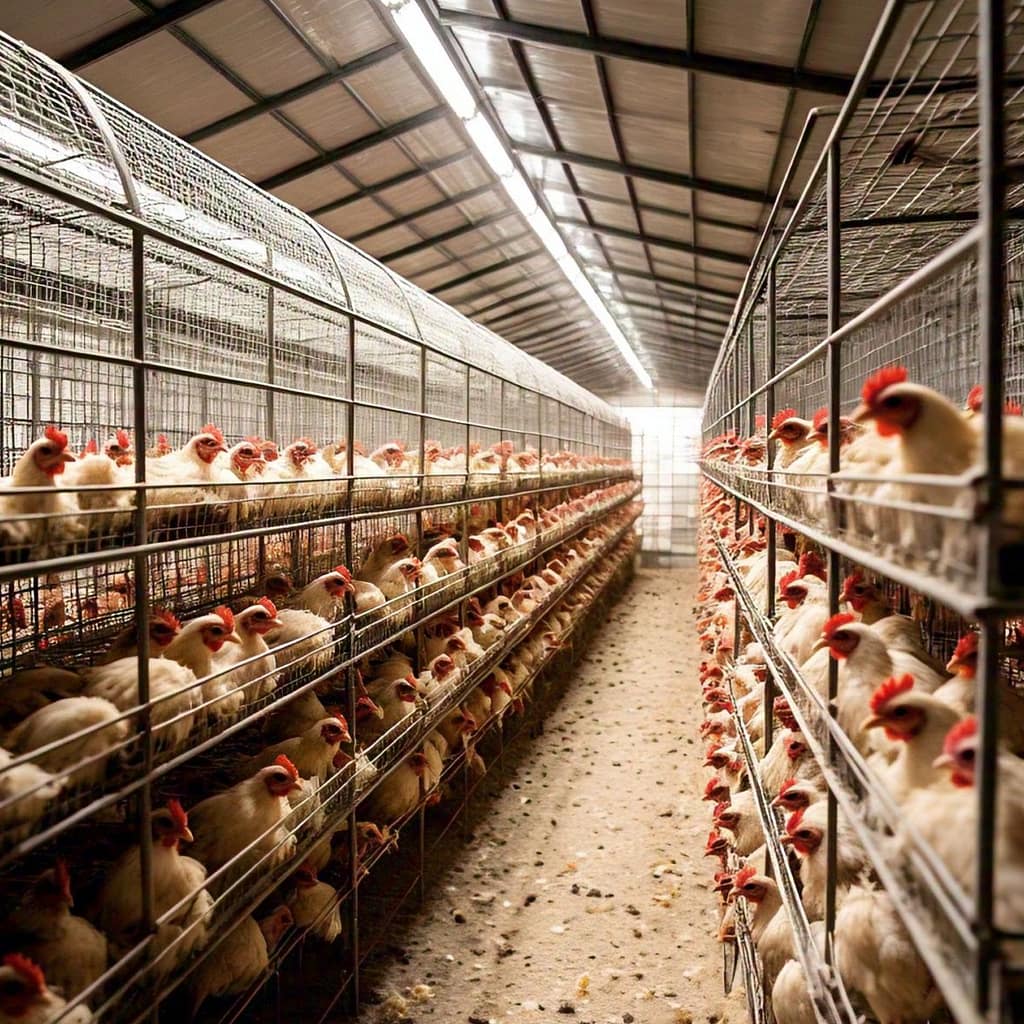
- Use the Deep Litter System (open floor space covered with sawdust) or Battery Cages for layers.
- Ensure proper ventilation, lighting, and temperature control.
- Keep the housing predator-proof.
7. Purchase Quality Birds
- Buy healthy chicks from reputable hatcheries.
- Choose between day-old chicks or point-of-lay birds, depending on your budget and goals.
8. Feed and Nutrition Management
- Provide balanced feed based on the birds’ age and purpose (starter feed, grower feed, or finisher feed).
- Ensure access to clean drinking water at all times.
9. Maintain Proper Health and Biosecurity
- Vaccinate birds against common diseases like Newcastle Disease.
- Regularly clean the poultry house to prevent infections.
- Monitor birds for signs of illness and consult a vet when needed.
10. Market and Sell Your Products
- Use social media platforms like Facebook and Instagram to promote your poultry farm.
- Sell directly to consumers, restaurants, and supermarkets.
- Explore partnerships with distributors or food processing companies.
Download this guide in Pdf file:
How Much is Needed to Start a Poultry Farm in Nigeria?
Here’s a breakdown of typical costs for a small-scale poultry farm:
- Day-Old Chicks (100): ₦30,000
- Feed (Starter and Grower): ₦50,000
- Housing and Equipment: ₦100,000
- Vaccines and Medication: ₦10,000
- Miscellaneous Costs: ₦10,000
Total: Approximately ₦200,000
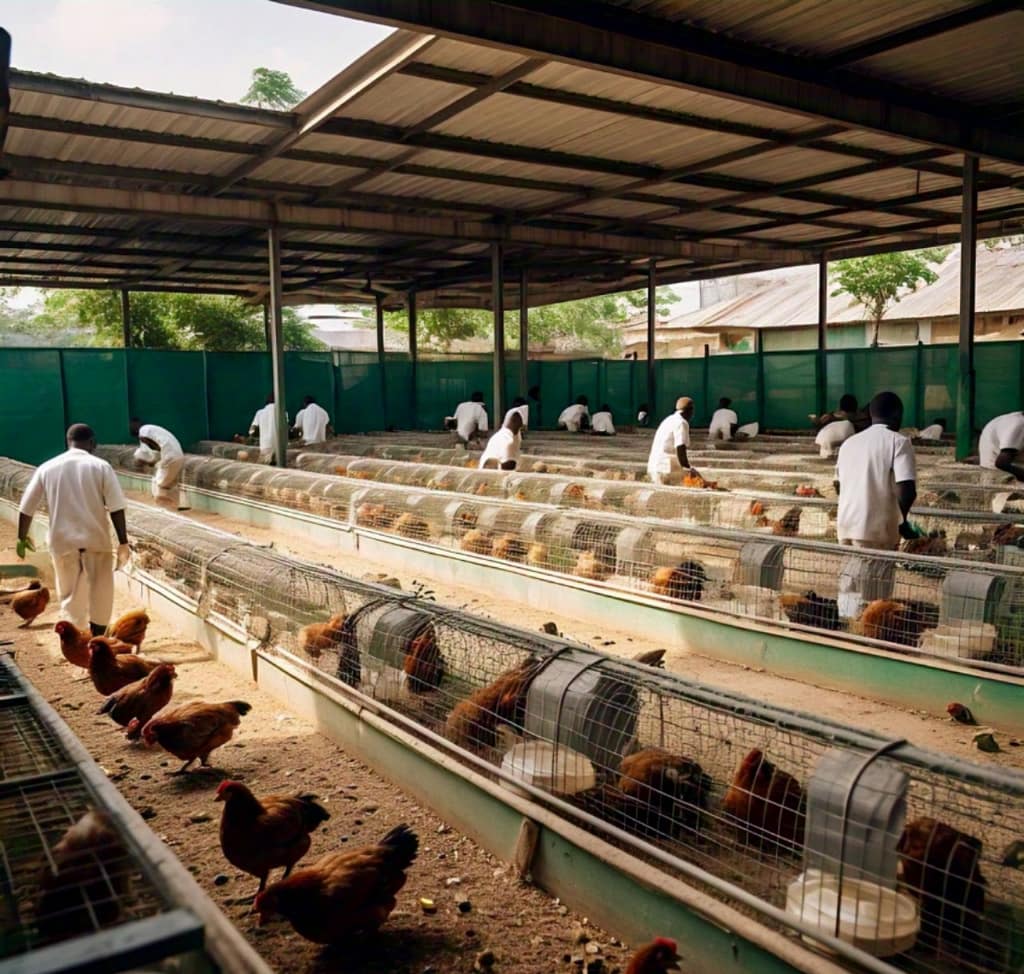
Challenges in Poultry Farming and How to Overcome Them
- Disease Outbreaks: Maintain strict hygiene and vaccinate your birds.
- High Feed Costs: Produce your feed if possible or explore alternative feed ingredients.
- Market Competition: Differentiate your products by offering quality and competitive prices.
Encouragement for Beginners
Starting a poultry farm might seem challenging, but with proper planning, dedication, and patience, you can achieve success. Begin small, learn the ropes, and scale as you gain experience.
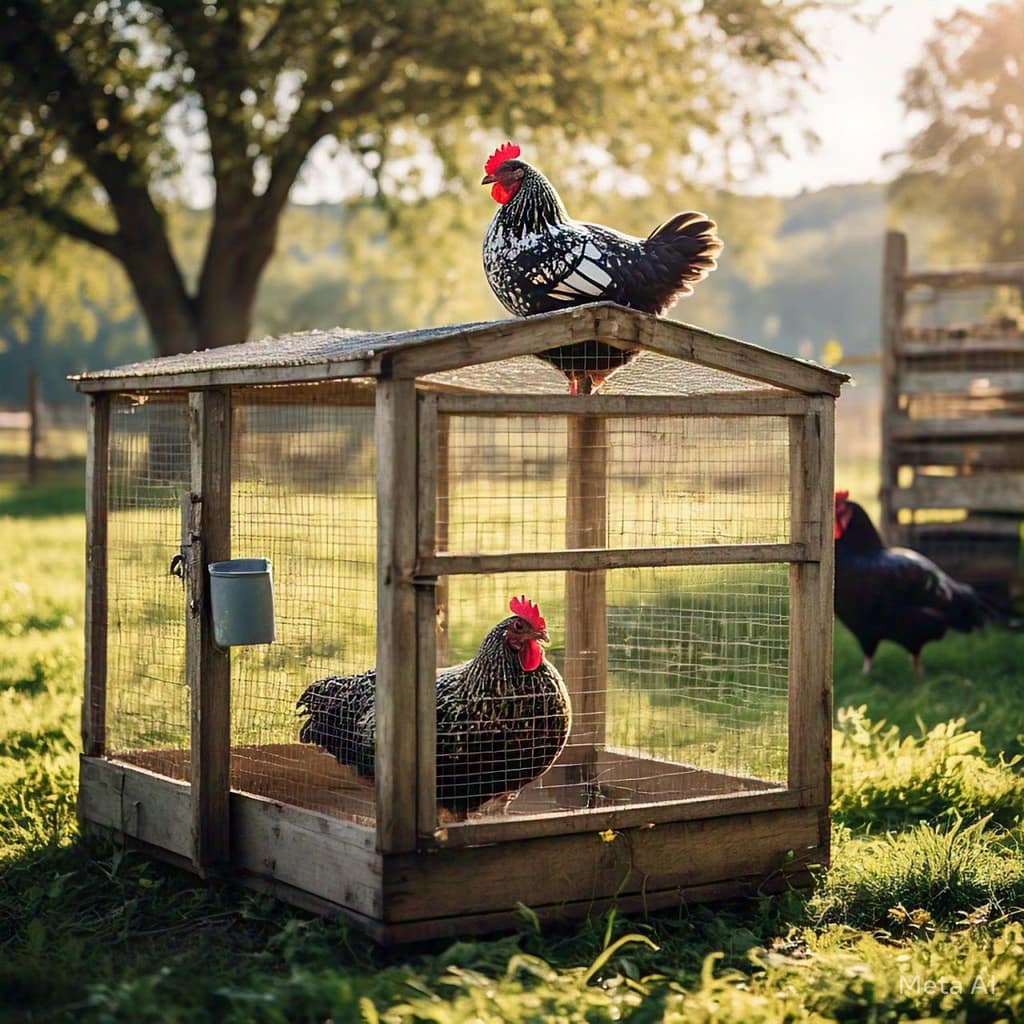
Stay Updated with EduCareers.com.ng
For more business guides and tips, stay tuned to EduCareers.com.ng. Don’t forget to comment, like, and share this post to help others discover this valuable information.
See more: Small Business Ideas for Nigerian Students – How to Start and Succeed
What’s stopping you from starting your poultry farm today? Share your thoughts below!
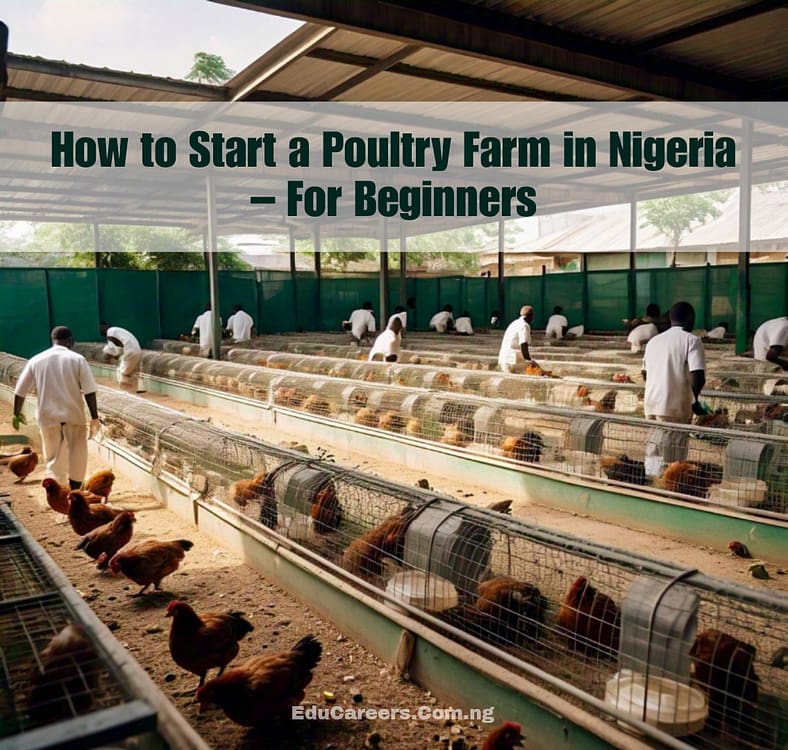






1 Comment
Thank you for your sharing. I am worried that I lack creative ideas. It is your article that makes me full of hope. Thank you. But, I have a question, can you help me?